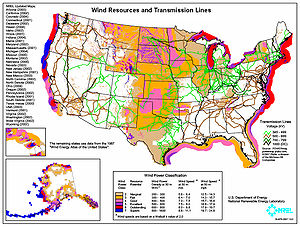forum
library
tutorial
contact

Subsidizing Green Industry is Like
Propping Up a Kid's Lemonade Stand
by Todd Myers
Seattle Times, October 10, 2012
|
the film forum library tutorial contact |

|
Subsidizing Green Industry is Like
by Todd Myers
|
Imagine taking that business model to the big time with a national chain of lemonade stands
and earning millions. That's the model that supports the green-energy industry.
 As far as business models go, it is hard to beat the lemonade stand. The costs -- lemons, cups, sugar -- are paid by the parents. Kids have no overhead and receive all the profit.
As far as business models go, it is hard to beat the lemonade stand. The costs -- lemons, cups, sugar -- are paid by the parents. Kids have no overhead and receive all the profit.
Further, the young, cold-beverage proprietors have a built-in demand from neighbors willing to overpay for lemonade sold by kids.
Imagine taking that business model to the big time with a national chain of lemonade stands and earning millions. Such an idea is pure foolishness. Parents would be unlikely to pay the subsidies required. The good feeling that obliged neighbors to buy lemonade probably won't be there for the multimillion-dollar lemonade-stand company.
Business owners can't expect others to pay their bills. That is, unless they produce so-called green energy.
John Plaza, the head of Imperium Renewables, a Seattle biodiesel company, told one reporter all he needed from taxpayers was "a mandated floor, and incentives with tax policy." In other words, a law requiring people buy his product -- "a floor" -- and tax subsidies to pay his company's bills.
It's the lemonade stand, with taxpayers playing the role of deep-pocketed parents, subsidizing every gallon of biofuel. Washington and federal law then requires gas stations to blend those subsidized biofuels into every gallon of gas, requiring cost-stressed consumers to buy the fuel, whether they want to or not.
The system of green subsidies isn't sustainable. Inland Empire Oilseeds in Eastern Washington found this out when federal subsidies ended and they shut down operations for a year, laying off workers and harming the community.
Oregon, California and other states are struggling under the weight of huge green-energy subsidies on strained public budgets. Oregon's subsidies have exploded, and are expected to cost the state nearly $300 million this biennium alone.
Some argue this is the point -- government should continue paying green subsidies no matter what. This view ignores other public commitments, such as health care and education and programs that actually help the environment. What gets cut?
Asking governments to promise money to millionaire owners of green-energy companies during a recession is like asking parents to pay for lemonade stands after losing their jobs.
Others argue green-energy subsidies balance military support and subsidies for fossil fuels. There is some truth to this, but it is really a red herring.
First, subsidies for some renewables are beyond all reason. According to the U.S. Energy Department, fossil fuels receive a subsidy of about six one-hundredths of a cent per kilowatt hour. Wind power receives about five cents per kilowatt hour -- a massive subsidy, but modest compared to solar, which receives nearly 97 cents per kilowatt hour. That's 1,600 times the fossil-fuel subsidy.
Second, if green-energy advocates cared about making renewable energy affordable, why did the White House increase the price of the least expensive solar panels? China's production capacity drove the cost of solar panels down, making them more affordable. Then the Obama administration put tariffs on the panels, driving up the price. Having spent billions to prop up American solar panel companies, the administration couldn't afford more Solyndras. The tariffs are designed to save these companies, not because it is good for the environment (the tariffs harm the environment), but because it is good politics.
When a competing kid begins selling lemonade for half the price, it would be nice to have the police drive him or her out of business for you.
When green-energy companies compete on a level playing field, the best technologies emerge, creating sustainable energy and jobs for the long run.
It is unfair to make taxpayers protect millionaires from losses when green-energy companies go bust. Such subsidies are unfair. Taxpayers pay the price, as do workers who find the rug pulled out from under them when politicians run out of other people's money.
learn more on topics covered in the film
see the video
read the script
learn the songs
discussion forum
